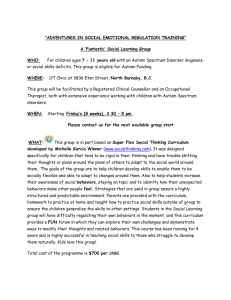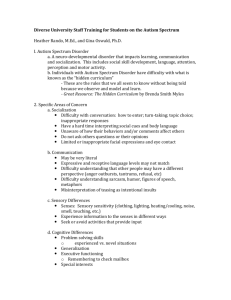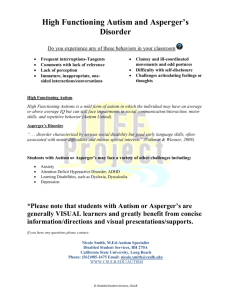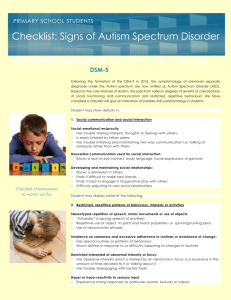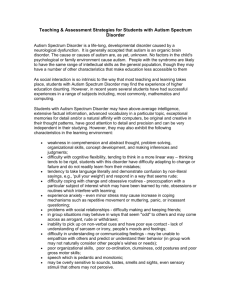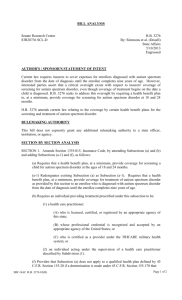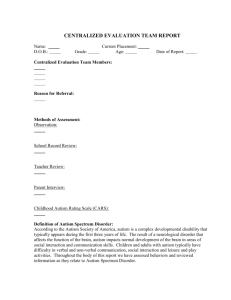Consulting regarding Individuals on the Autism Spectrum
advertisement
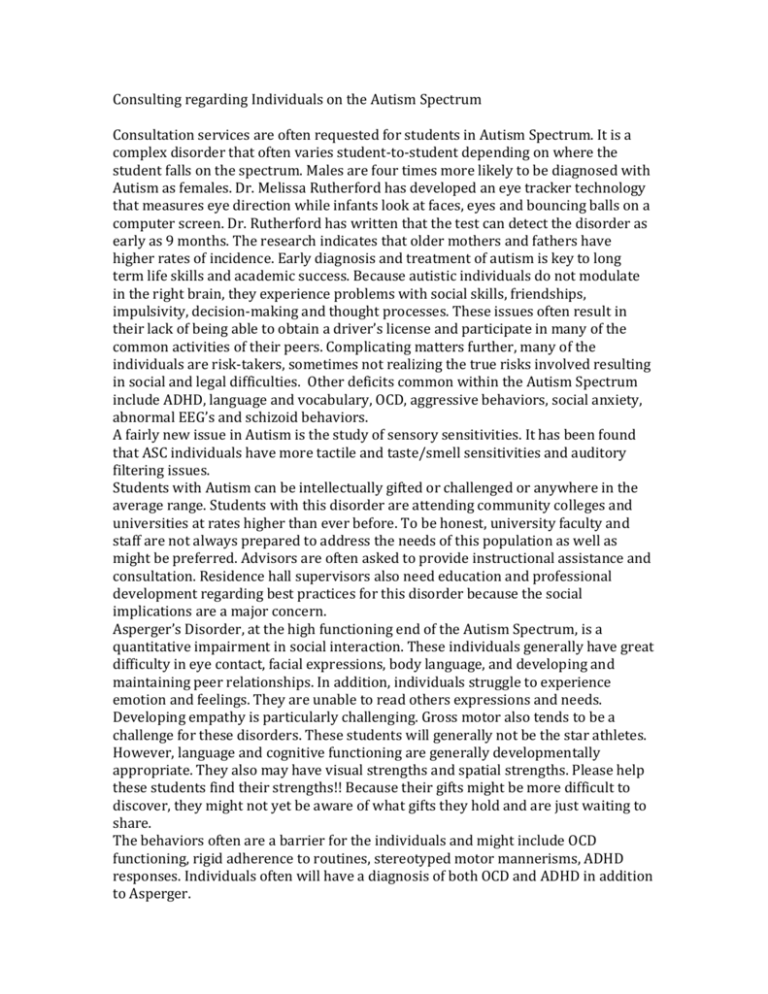
Consulting regarding Individuals on the Autism Spectrum Consultation services are often requested for students in Autism Spectrum. It is a complex disorder that often varies student-to-student depending on where the student falls on the spectrum. Males are four times more likely to be diagnosed with Autism as females. Dr. Melissa Rutherford has developed an eye tracker technology that measures eye direction while infants look at faces, eyes and bouncing balls on a computer screen. Dr. Rutherford has written that the test can detect the disorder as early as 9 months. The research indicates that older mothers and fathers have higher rates of incidence. Early diagnosis and treatment of autism is key to long term life skills and academic success. Because autistic individuals do not modulate in the right brain, they experience problems with social skills, friendships, impulsivity, decision-making and thought processes. These issues often result in their lack of being able to obtain a driver’s license and participate in many of the common activities of their peers. Complicating matters further, many of the individuals are risk-takers, sometimes not realizing the true risks involved resulting in social and legal difficulties. Other deficits common within the Autism Spectrum include ADHD, language and vocabulary, OCD, aggressive behaviors, social anxiety, abnormal EEG’s and schizoid behaviors. A fairly new issue in Autism is the study of sensory sensitivities. It has been found that ASC individuals have more tactile and taste/smell sensitivities and auditory filtering issues. Students with Autism can be intellectually gifted or challenged or anywhere in the average range. Students with this disorder are attending community colleges and universities at rates higher than ever before. To be honest, university faculty and staff are not always prepared to address the needs of this population as well as might be preferred. Advisors are often asked to provide instructional assistance and consultation. Residence hall supervisors also need education and professional development regarding best practices for this disorder because the social implications are a major concern. Asperger’s Disorder, at the high functioning end of the Autism Spectrum, is a quantitative impairment in social interaction. These individuals generally have great difficulty in eye contact, facial expressions, body language, and developing and maintaining peer relationships. In addition, individuals struggle to experience emotion and feelings. They are unable to read others expressions and needs. Developing empathy is particularly challenging. Gross motor also tends to be a challenge for these disorders. These students will generally not be the star athletes. However, language and cognitive functioning are generally developmentally appropriate. They also may have visual strengths and spatial strengths. Please help these students find their strengths!! Because their gifts might be more difficult to discover, they might not yet be aware of what gifts they hold and are just waiting to share. The behaviors often are a barrier for the individuals and might include OCD functioning, rigid adherence to routines, stereotyped motor mannerisms, ADHD responses. Individuals often will have a diagnosis of both OCD and ADHD in addition to Asperger. Best practices include teaching self-advocacy, anti-bullying strategies, social skills, role-playing, academic strategies to address deficits, skill-streaming utilizing modeling, career education and appropriate workplace/employment behaviors, constructive feedback, effective and advanced interpersonal relations feedback including reflection statements and confrontation.
